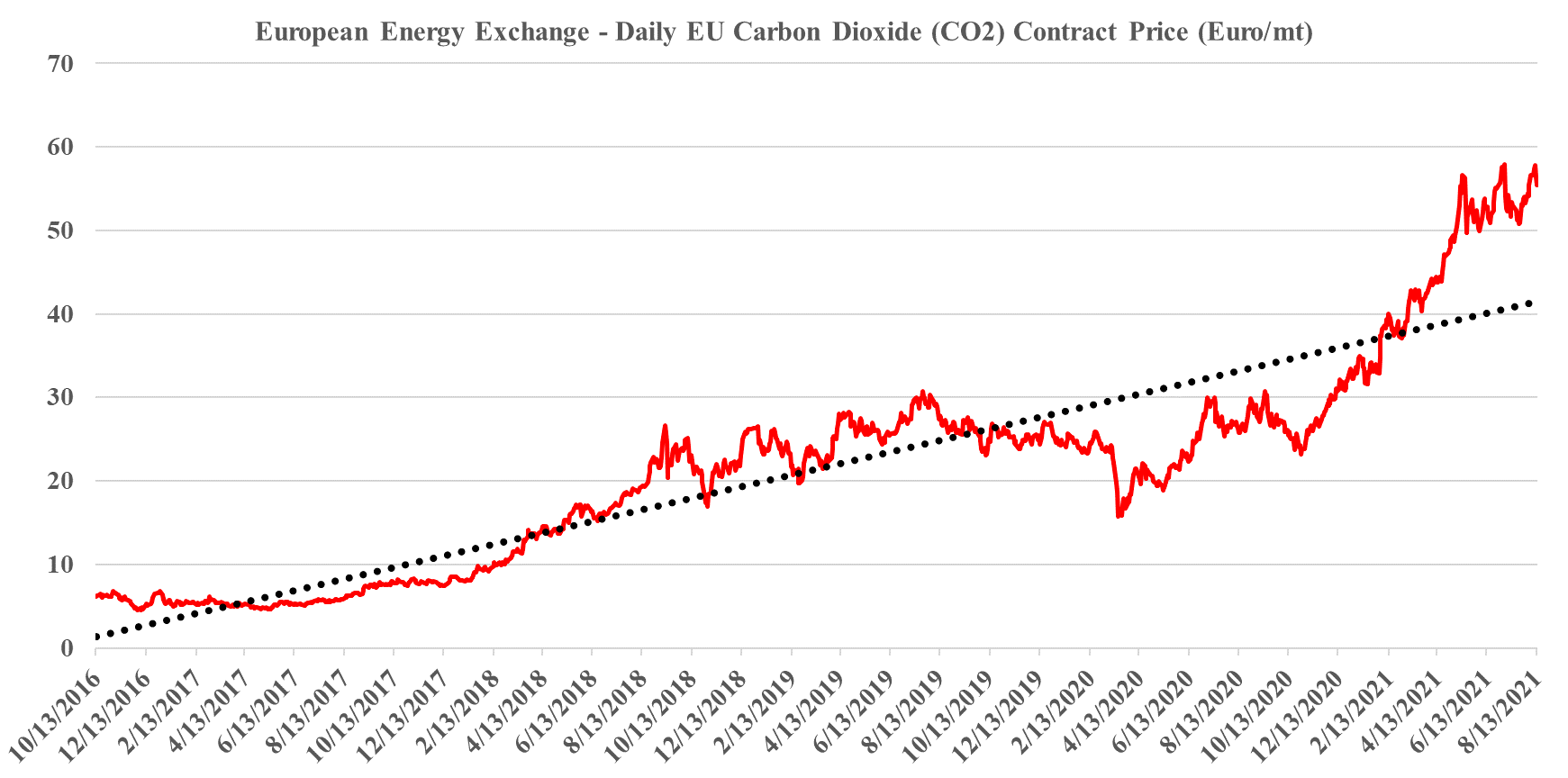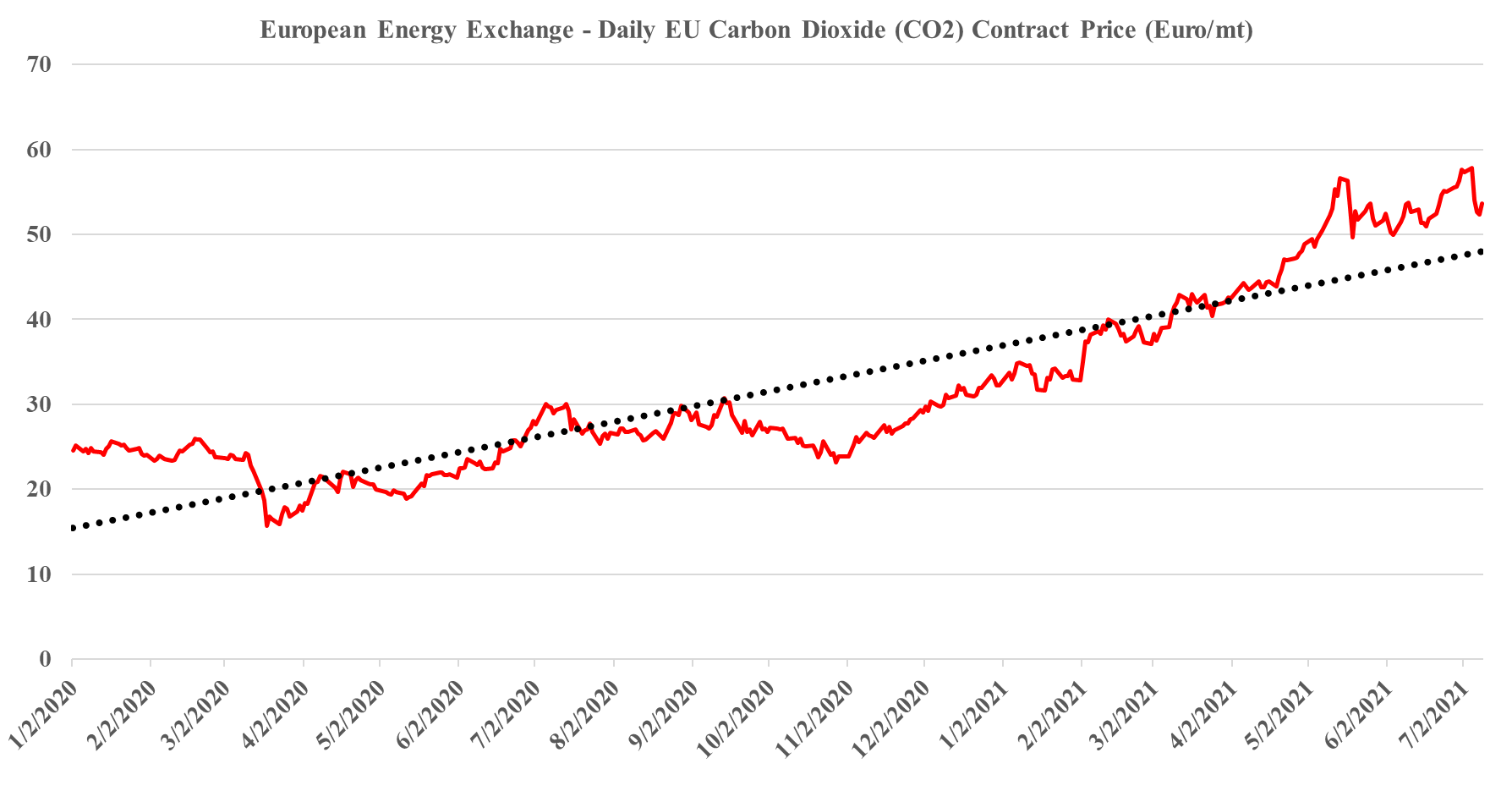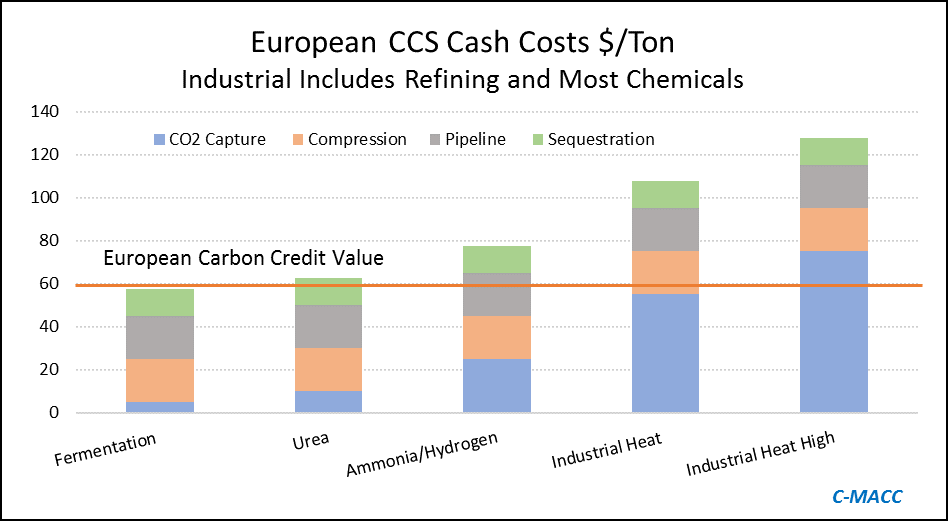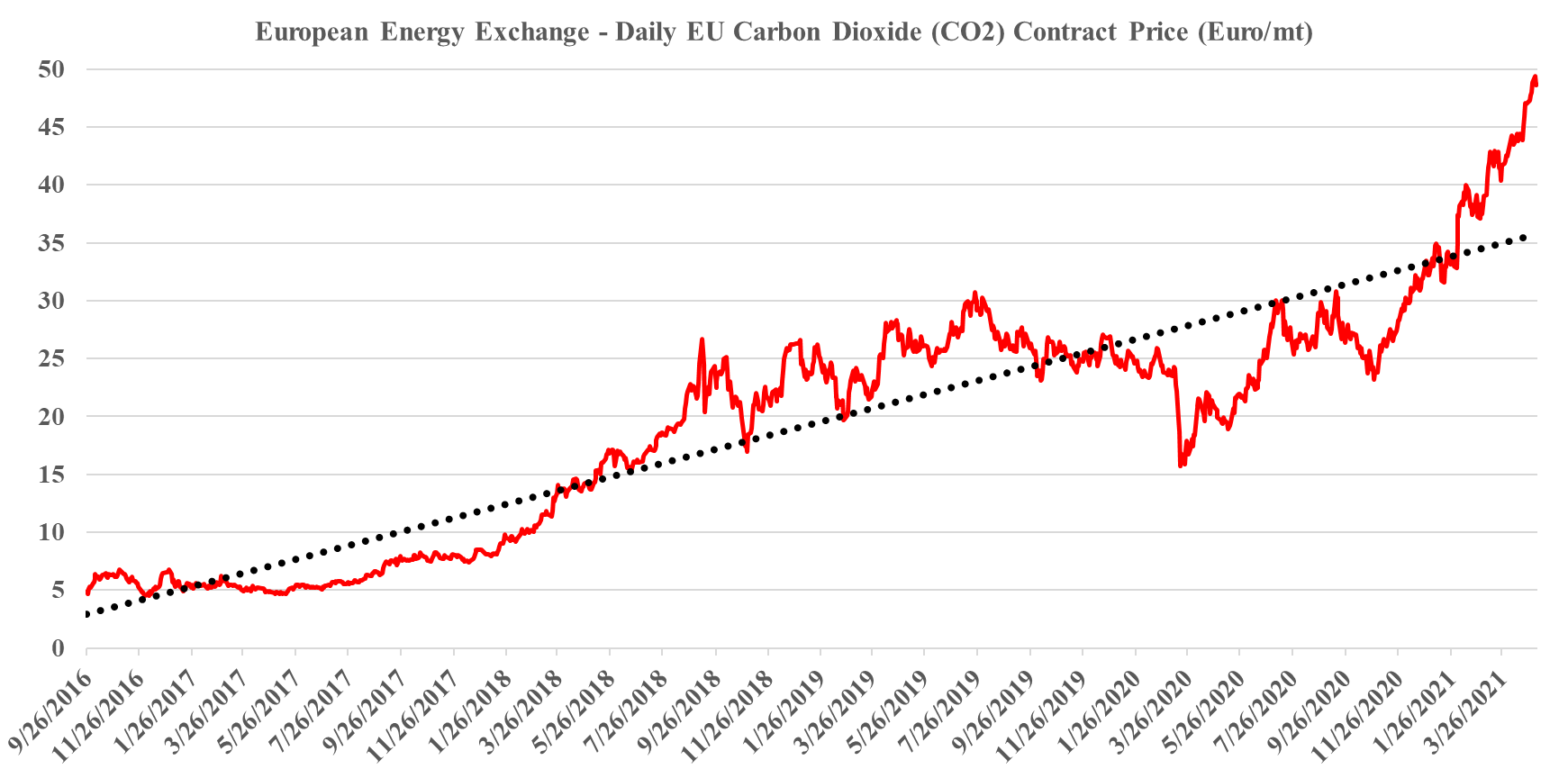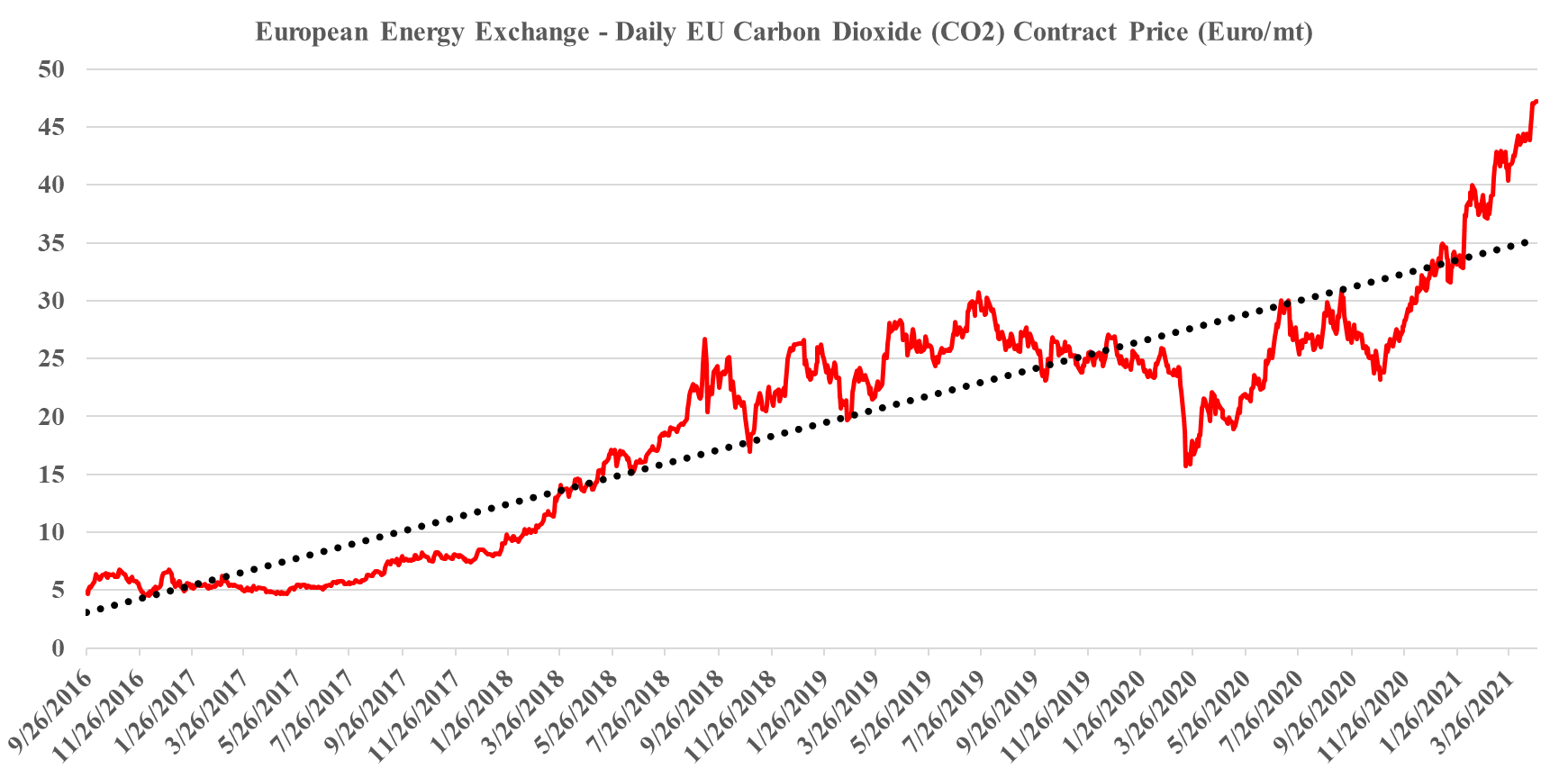As we sift through the positioning for the upcoming COP26 meeting and the attention focusing report from the IPCC this week, it is a reasonable question to ask what this means for the plastic waste issue. If governments, lobbyists, and activists are likely to be more focused on climate change action over the next few years, which seems to be a reasonable conclusion, will there be the bandwidth for plastic waste? The plastic waste issue is less open to interpretation than the climate change issue and is a visible problem for all, but if governments need to prioritize where they spend their incremental dollar, and/or where they provide incentives of penalties, the climate is going to be pushed to the front of the line in our view. Plastics producers will have to deal with emissions, like any other industrial user of power and heat. The risk is that local governments, looking for revenue to support climate initiatives see taxing virgin plastic (or unrecycled plastic) as a way to both push plastic waste initiatives forward and raise revenue. Adding a plastic tax in the US to the superfund proposal in the infrastructure bill would be hitting the chemicals industry from two sides and would give bodies like the ACC far more grounds for pushback. For more on the IPCC analysis see our ESG & Climate Change report from this week.
Will The Climate Frenzy Leave Plastic Waste Ignored For Now?
Aug 13, 2021 11:46:37 AM / by Graham Copley posted in ESG, Climate Change, Plastic Waste, Plastics, CCS, CO2, Emissions, Carbon Price, carbon abatement, climate, IPCC, Plastics producers, COP26, virgin plastic, plastic tax
Carbon Pricing May See Several Sources Of Volatility
Jul 9, 2021 1:02:30 PM / by Graham Copley posted in ESG, Climate Change, Carbon, Carbon Price, Carbon Neutral, carbon abatement, carbon offsets, offsets, climate, greenwashing
We are skeptical about carbon offsets and we are more skeptical about announcements around carbon-neutral fuel and chemical cargoes. The ESG and climate activists have their radars finely tuned for “greenwashing” and other exaggerated claims, and when we get into offsets, whether as a traded market or as a one-off green cargo we rightly see the skeptics. The cargoes – ethylene below and an LNG cargo earlier this week - are PR stunts in our view and while the accounting may be accurate, the one-off costs are likely high, and the ability to repeat the process for significant volumes is limited. It may be proof that you can create carbon neutrality through offsets, but the supply of offsets will likely never be large enough to create affordable permanent pathways, and offsets should be looked at by all as a way to go the last mile, having exhausted all other options, including carbon avoidance and carbon use or sequestration. We have noted in prior work that we see a risk of too many people banking on a share of the offset market than the likely size of the market – creating price inflation and ultimately lower revenues than could have been achieved through alternate means. Current offset markets are cheap – at least relative to other costs of carbon abatement, but higher levels of oversight, which are both needed and planned, will likely limit availability going forward – also suggesting higher pricing.
If Carbon Prices Don't Rise, The Tax Payer Will Foot The Bill Anyway
May 12, 2021 1:28:52 PM / by Graham Copley posted in Chemicals, CO2, Carbon Price, ESG Investing, Shell, Air Products, Air Liquide, ExxonMobil, Industrial Gas, Emission Goals
The big news of the week is the massive grant that the Dutch government approved for an offshore carbon capture project that will be focused on the operations of Shell, ExxonMobil, Air Products, and Air Liquide. This looks to be localized within the Port of Rotterdam, where both oil majors operate large refineries, Shell also operates a large chemical site and the industrial gas companies have significant hydrogen capacity. The Dutch government believes that the country cannot achieve its emission goals without carbon capture as it has one of the largest refining and chemical footprints in Europe and the $2.4 billion grant (likely achieved through a series of subsidies) is an indication that the country is willing to invest to make its emission goals a reality. The grant is likely aimed to help close the gap between the current European carbon price – which is just over $65 per ton today and what is estimated to be the full cost of capture and storage under the North Sea, which the linked article suggests is closer to $100 per ton, but this likely underestimates the capture costs – see chart below - even if the CO2 streams are pooled and treated as one stream. Interestingly, despite the high level of subsidy, this project is estimated to store only 2.5 million tons a year and will only last 15 years (likely because of the capacity of the offshore reservoir). For more see today's ESG report.
Source: Global CCS Institute and C-MACC Analysis and Estimates
Without A Carbon Price US Regulations Will Need To Be Tougher & Unpopular
May 5, 2021 12:12:43 PM / by Graham Copley posted in Climate Change, Emissions, Carbon Price, CP Chemical, Carbon Neutral
We doubt that President Biden’s moratorium on new drilling will result in an outright ban. As we discuss in the ESG report today, the lack of unity on the idea of a carbon tax in the US means that the administration has to approach climate change issues in a more piecemeal fashion and one of the easiest triggers to pull, is to limit any new investment that adds to emissions. Our guess is that we will see an EPA-led agenda shortly that will only allow new US energy (and probably industrial) investments that come with a carbon-neutral plan. Drilling will likely be allowed to continue as long as the new wells have zero emissions or have offsets to counter any new emissions. It is unlikely that this will be restricted to oil and gas, and CP Chemical with their 1-Hexene project announced above may be in for a surprise when they apply for a permit.
Without A US Carbon Price, Emission Goals Become More Challenging
Apr 27, 2021 12:19:33 PM / by Graham Copley posted in ESG, CO2, Carbon Price


